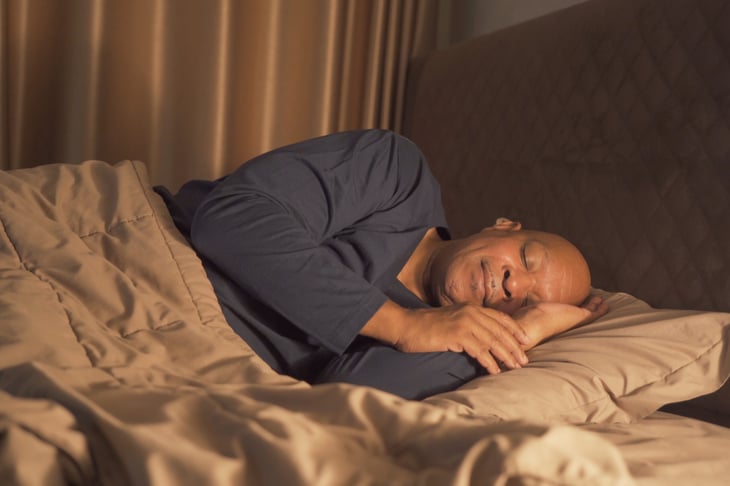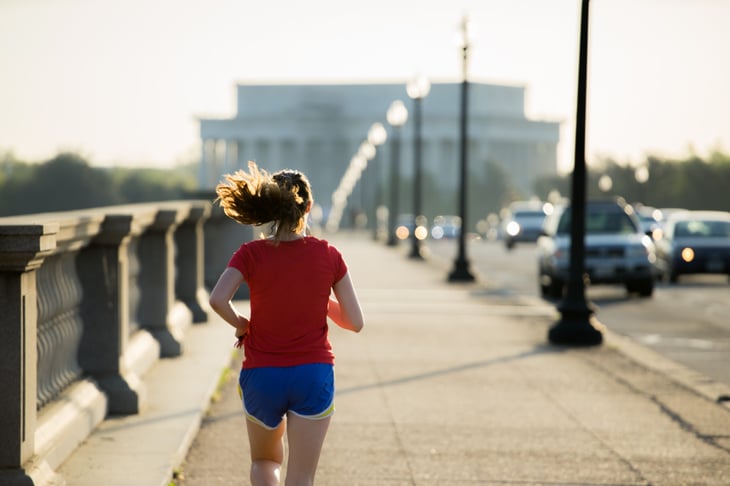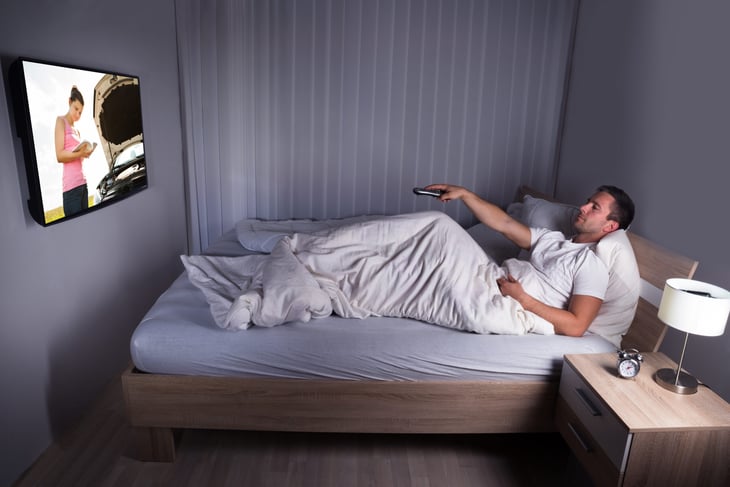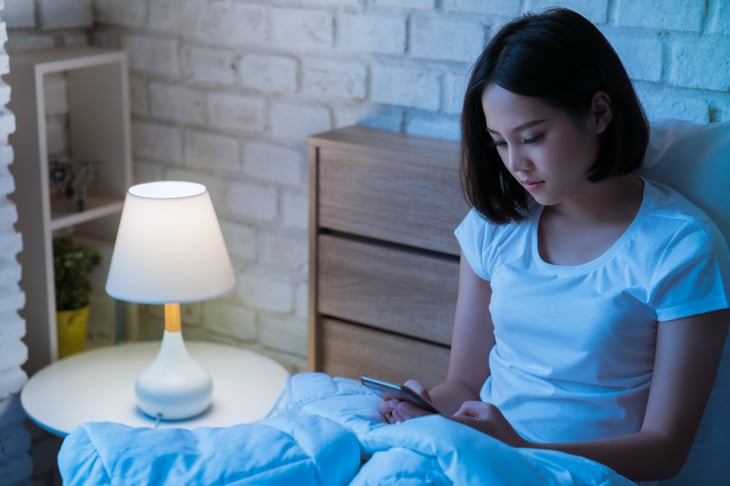
A great day starts with a good night’s sleep, and recent research indicates those in middle to advanced age should be getting seven hours of slumber nightly. However, that can be challenging for some people.
“Ideally, it would be best to go to bed in a cool, dark room,” says Dr. Peter Polos, a sleep medicine specialist and Sleep Number sleep expert. He tells Money Talks News that having the right mattress and bedding can also be crucial to a good night’s sleep.
Beyond that, there are some activities you should avoid in the hours before your bedtime. Specifically, skip the following to help ensure you get quality rest each night.
1. Exercise vigorously

Polos notes that exercise is something of a grey area when it comes to sleep quality, with some studies indicating mild exercise such as yoga and stretching can help people sleep. However, cardiovascular activity, such as running or aerobics, can have a negative effect.
Vigorous activity can release hormones and increase body temperature, both of which may be detrimental to falling asleep.
“The closer to bedtime you do that, the more of an impact it has,” Polos says.
He recommends people wrap up any cardiovascular exercise two to three hours before they plan to turn in for the night.
To learn about a workout that can help improve the quality of your sleep — provided you do it at the right time of day — check out “The Best Type of Exercise for Sleep Isn’t What You Think.”
2. Consume caffeine

Thanks to its caffeine content, coffee is a common pick-me-up for those trying to wake up in the morning. And most people know a cup of joe before bed is probably a mistake, but caffeine can be found in other foods as well. Like that piece of chocolate you have for dessert each night.
While the amount of caffeine in chocolate isn’t nearly as high as coffee, it could still impact someone’s sleep.
“Some people are more sensitive to this component than others,” says Alex Savy, founder of SleepingOcean, a website dedicated to sleep-related information and product reviews. “For them, even a little piece of chocolate can mean difficulties falling asleep afterward.”
3. Work

Working right up until bedtime can keep the brain engaged and may make it difficult to transition to sleep, Savy tells Money Talks News. What’s more, he cautions against taking your laptop to bed with you.
“Working in bed — or even in one’s bedroom — makes the brain create an association between this room and work,” according to Savy. “As a result, it might be more challenging for people to wind down and drift off to sleep.”
4. Drink alcohol

It’s not unusual for some people to have an alcoholic drink or two before bed to wind down, but that could be a mistake.
“Alcohol is definitely not a good pre-sleep ritual,” Polos says. “It really impacts sleep quality.”
While alcohol may make you drowsy and help you fall asleep, it could cause other problems. Most notably, Polos says it can push back REM sleep until later in the evening and cause other sleep disruptions. Rapid eye movement (REM) sleep is associated with improved concentration, memory and mood regulation.
5. Watch TV

Electronic devices such as televisions emit blue light that can suppress creation of the hormone melatonin, which affects sleep cycles. Even if blue light weren’t a problem, Polos says the content someone watches — such as action movies — can be stimulating and make it more difficult for people to fall asleep.
For that reason, Polos recommends turning off the television an hour before your bedtime. But he distinguishes between actively watching TV and having it on in the background as a form of white noise.
“I do have patients who do like to sleep with the TV on for background noise, and I don’t discourage that,” Polos says.
If it doesn’t seem to be fragmenting sleep, he tells his clients that it’s OK to continue the practice.
6. Scroll on the internet

The internet can be even more disruptive to sleep than television.
“The blue light might be a bit more concentrated, and there may be an expectation of a response,” Polos says.
If you are texting before bed, there may be a natural tendency to want to wait up and see if someone replies. People may also find themselves continually refreshing social media sites or online discussions to see new posts. To avoid falling into this habit, Polos recommends powering down electronics an hour before you plan to go to sleep.





Add a Comment
Our Policy: We welcome relevant and respectful comments in order to foster healthy and informative discussions. All other comments may be removed. Comments with links are automatically held for moderation.